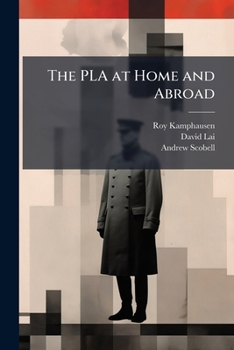The PLA at Home and Abroad
Select Format
Select Condition 
Book Overview
The chapters presented in this volume have demonstrated first, Chinese and PLA leaders have a strong sense of mission and concern for China's security and well-being. Second, the PLA is committed to the transformation in military affairs with Chinese characteristics. Third, the PLA is eager to learn from the U.S. military to expand and improve its operational capabilities. Finally, the PLA has made progress in its transformation and operational capabilities. For a long time, American leaders have been surprised with the PLA's advances. This volume (and many of the previous volumes from past PLA conferences) show that these advances did not come out of the blue. Although much of the learning and many of the improvements are still far from what is desired (from Chinese expectations and American critiques), and some of the learning has even created contradictions for the PLA, these persistent and diligent learning practices will eventually bring the PLA to a higher level of proficiency in its capabilities. The emergence of a much more sophisticated PLA in the coming years should not be a surprise.
This work has been selected by scholars as being culturally important, and is part of the knowledge base of civilization as we know it. This work was reproduced from the original artifact, and remains as true to the original work as possible. Therefore, you will see the original copyright references, library stamps (as most of these works have been housed in our most important libraries around the world), and other notations in the work.
This work is in the public domain in the United States of America, and possibly other nations. Within the United States, you may freely copy and distribute this work, as no entity (individual or corporate) has a copyright on the body of the work.
As a reproduction of a historical artifact, this work may contain missing or blurred pages, poor pictures, errant marks, etc. Scholars believe, and we concur, that this work is important enough to be preserved, reproduced, and made generally available to the public. We appreciate your support of the preservation process, and thank you for being an important part of keeping this knowledge alive and relevant.





